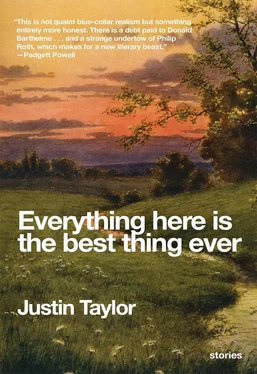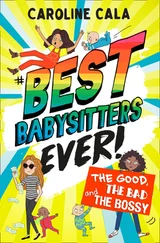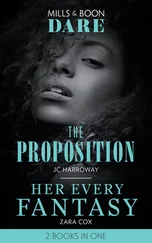Roger becomes reinvested in the devout Catholicism of his youth. He moves back into his own place, starts going to Pax Christi meetings, works himself back into shape. They seldom see him anymore.
But sometimes, when David wakes up early enough, he’ll spot Roger out on his morning run: sweaty, renewed. Probably Roger is oblivious to the figure in the window. Does he ever give a thought to what he stole from David when he was healed? David tries to make himself forgive Roger, but he just can’t. After a while he doesn’t even want to.
“I mean you know I would never—”
“David.”
“I—”
“Just stop . Just shut up and let me look at this.”
Estrella is at the bathroom sink, her right arm over her head, her left hand touching her right breast, prodding it to test its sensitivity, studying in the mirror the crimson bite mark on its underside. It really didn’t bleed that much; a bruise is all it should have been. The skin breaking was a total accident. It’s the middle of the night, another night. David, silenced, finds himself reflecting on how rarely they do anything during the day.
“Baby,” he says.
“Don’t,” she says. “I mean it’s okay, it’ll be okay, you know whatever, but right now just don’t.”
Ikeep finding myself in places I don’t expect me, such as outside churches, lurking, peering in their dooryards, or inside my own hollow skull, living a life to which the term hardscrabble might be astutely or ironically applied. Luckily, there are no ironists or astuticians around to subject me to application. It’s just me in here — I’m not even wearing socks. A warm footness buoys faceward. Sometimes, I positively swim with aromas. When charming certain women this everyday household constraint can be recast in the light of advantage. Conscript your drawbacks into tempting signposts of your touchable personhood: it’s the only way, and in this way do I obtain access to their definitive admixtures. I’m concerned though that the footness has been preserved — uncharmingly — in the fabric catalog of this secondhand armchair, already overstuffed with records of what it’s been to whom. A casual observer couldn’t separate the come stains from those of the breast milk. No matter; we’re talking about poles of the same basic problem: the punitive fact that I am not a casual observer. Of the few things I do well, casualty is not one of them. I’m the guy who clenched his teeth. Do you remember him and me being him, how you wished we would have moaned instead or called your name out like a concise indictment? But that’s not us. We’re intense and idiosyncratic, just like everyone. We love out of fashion. We call exes in other states just to chat. We’re comfortable with your new man, really, we just don’t want to hear about him. We want instead to tell you about the weird time I found myself headed in opposite directions on the east side of Sixth Avenue between West Eleventh and West Twelfth, on our way to and from the red express train, wearing the same shirt. I didn’t recognize me right away. It took us some time. We knew I knew me but we wasn’t sure, and so stood there trading platitude futures while we plumbed every inner depth, searching for what had to be there. Each of us trying to remember our name, force it first onto the other one.
SOMEWHERE I HAVE HEARD THIS BEFORE
Stan was eleven years old and things had gotten so bad between his parents the only thing they could agree on was that he should spend some time out of the house. Since it was coming on summer anyhow, they packed him up just like they’d done in years previous for camp, though this year there was no money for that, no way. They sent him instead to his aunt, his mother’s sister, a distracted woman, twice divorced, who lived in a decent house on Long Island in a neighborhood the long-time residents felt was in decline. Changing was the word they used. They were mostly Jews and what they meant was blacks were moving in.
Aunt Lisa had long blond hair, split at the ends and graying at the roots. She lit purifying candles, was a sort of New Ager, and had a boyfriend who owned a landscaping business. They smoked pot up in her bedroom, where she thought her daughter and nephew wouldn’t smell it, though both of them did, though only the daughter knew it for what it was. Mandy was fifteen and totally grunge. She hated her mother for a hippie and she hated summer because it was too hot to wear the clothes she liked to wear (she wore them anyway) and because she was in summer school because she’d spent the school year stoned, which is why she had her mother’s number, all right.
Aunt Lisa’s boyfriend’s fortunes were declining with the neighborhood’s. It was because the new neighbors did their own yard work. Nothing too fancy, just a simple clean yard was what they liked: grass mowed, hedges clipped, done. And for the most part they did it themselves. He talked about his troubles over dinner. “Niggers,” he said — he wasn’t even Jewish — and Aunt Lisa said “Charles,” and that was that.
Stan was in love, obviously. Mandy had an angular face, boy hips, missile tits, and natural red hair streaked fuck-you blue. She wore torn black jeans and thrift-store tees that advertised defunct products or commemorated the company picnics of yesteryear. Sometimes she would pick out a plain white shirt and scribble some band’s lyrics on it with a laundry marker. And always the red-and-black flannel, worn unbuttoned all the way (cuffs too) so the outsize shirt hung on her like a drape. She kept her wallet clipped to her pants with a long shiny chain that she was hopeful would scuff with time.
Stan sat in the living room in the big chair by the picture window, sometimes holding a comic book, sometimes nothing at all, staring out at the street waiting for that first righteous glimpse of her on her walk home from summer school.
Naturally, she had him totally figured out and some days called him a baby and sent him off and so the days when she felt like putting up with him were extra special for them both. On those days she treated him like an equal, sort of, and took him down to the basement, which had been converted into a den by the first husband and decently appointed by the second.
Aunt Lisa had inherited the home from her mother. Aunt Lisa’s sister — Stan’s mother — had gotten the cash and Aunt Lisa had gotten the home. Aunt Lisa had never had doubts about who got the better deal, especially seeing as how Stan’s parents had pissed theirs away. The house still stood and still was hers. Men came and went, leaving their improvements behind as testament to the degree and duration of their best intentions.
There was a TV in the basement den and a nice comfy couch and a pool table even. Mandy would put on MTV just to have it on but she didn’t like to watch with Stan, who asked too many questions and didn’t get it . Having to explain why things were cool made the fact of their coolness less certain, and certainty was the rock on which she built. He was a summer baby, would turn twelve there, but in the meantime she didn’t need the grief. What he needed to do was learn.
They would stand behind the pool table, in the farthest corner of the basement, where there was no view from the stairs, where Lisa or Charles would come from if they ever came down to check on them, which neither ever had nor ever would. Mandy put her cool hands inside Stan’s clothing and touched him all over. “Let’s see what’s going on here,” she’d say. Or she’d put his sweaty hands inside her clothes and when she did that she said, “I’m going to teach you something today. When you’re older your girlfriends will thank me.” This was a variation on something a boy at her school — a senior — had said to her the previous winter, before teaching her something she hadn’t exactly wanted or not wanted to learn.
Читать дальше












